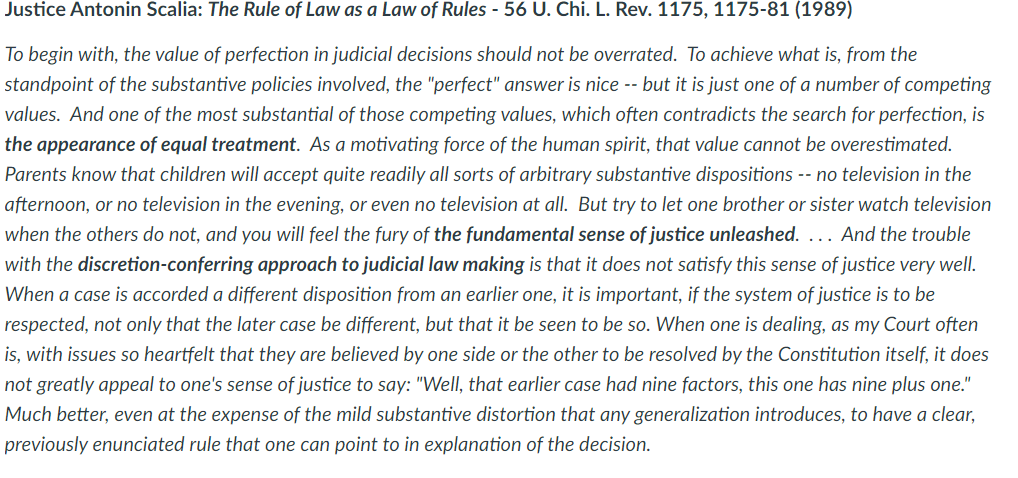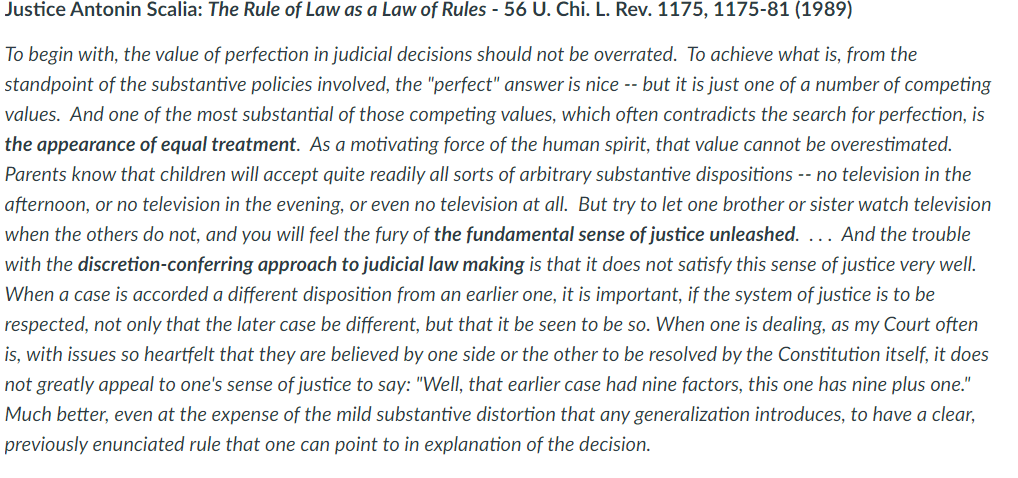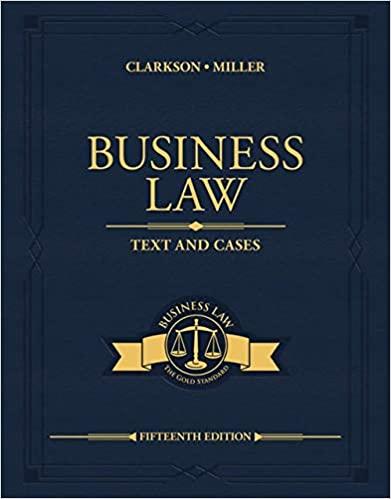Question
Please take a moment and think back to our discussion of the role(s) of judges in the legal system throughout the course of the semester,

Please take a moment and think back to our discussion of the role(s) of judges in the legal system throughout the course of the semester, then take a look at the following excerpt from an article by Justice Scalia taken from a law review article published in 1989. There is a link to the entire article (which is not long at all, less than two pages at the most) which you are welcome to read if you would like. After you read the excerpt, and the article if you choose to, please take a minute and recall the countermajoritarian difficulty. What does this difficulty refer to (give me a definition). Do you think the fact that we have federal judges whose role in our government is to interpret and apply the Constitution something that fundamentally promotes or prevents the equal treatment under the law of everyone that Justice Scalia mentions below?

Step by Step Solution
There are 3 Steps involved in it
Step: 1

Get Instant Access to Expert-Tailored Solutions
See step-by-step solutions with expert insights and AI powered tools for academic success
Step: 2

Step: 3

Ace Your Homework with AI
Get the answers you need in no time with our AI-driven, step-by-step assistance
Get Started


